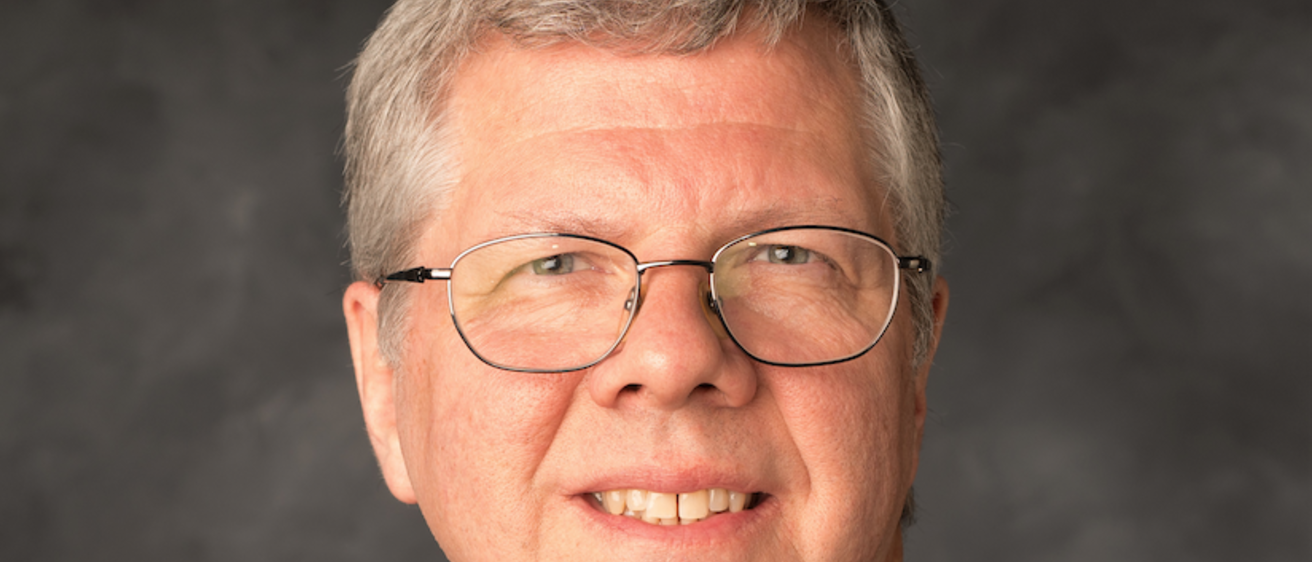With the start of a presidential election year, all eyes turn to Iowa and its unique process for voting on presidential nominees for each political party.

For more than 30 years, Tim Hagle, associate professor of political science in the University of Iowa College of Liberal Arts and Sciences and an Iowa Caucus expert, has had a front row seat, becoming the go-to expert for journalists all over the world.
The Iowa Caucuses are Jan. 15 this year, and Hagle says attendance matters.
“The main difference between a caucus and a primary election is what happens on caucus day,” say Tim Hagle, associate professor of political science in the University of Iowa College of Liberal Arts and Sciences and an Iowa Caucus expert. “Unlike a primary, where you have different options of how to cast your vote, the caucus meetings start at the same time at each location, traditionally 7 p.m.”
What happens on caucus day
All the attention will be given to the Republican caucus, which will be the first-in-the-nation look into who may become the Republican nominee in the 2024 presidential election. Local caucus locations can be found online at the Republican Party of Iowa website.
When the caucus begins, a representative from each of the candidates’ campaigns will have an opportunity to speak for three minutes at each caucus location. Then, participants will select their nominee on a preprinted ballot or a slip of paper. The votes will then be submitted to the state electronically. Barring any glitches, Hagle says the results should be available later in the evening.
While the presidential preference vote is typically what gets attention on caucus day, Hagle says the caucus meeting also is a time for each party to conduct its business, such as electing delegates to the county conventions and committees.
While the Democratic caucus always has been conducted differently from the Republican one, this year’s presidential preference process will be entirely new.
“The Democratic Party had a more complex system, but they have basically abandoned that,” Hagle says. “The Democratic National Committee decided it didn’t want Iowa among the early states anymore, but state law requires that we still have a caucus.”
Democrats are conducting the presidential preference portion of the caucus using a mail-in ballot, which can be requested through Feb. 19 at the Iowa Democratic Party website. Results of Iowa’s Democratic presidential preference votes will be released March 5.
The party’s website also shares locations of the Jan. 15 in-person caucus, where party business such as picking delegates and county central committee members will take place.
“In a sense, it’s good the Democrats are making a lot of changes in a year where there’s not a lot going on in the presidential race for them,” Hagle says. “It’s a more low-key affair, and that’s how it usually works when you have a candidate seeking reelection as an incumbent.”
Significance of the caucus
Hagle says the importance of the Iowa Caucus process goes beyond picking a presidential nominee.
“Getting voters to actually show up at a particular time and place is hard, which is why turnout usually is lower than in a traditional primary election,” he says. “Part of the reason for that is you have to have voters who are extremely committed to turn up at 7 p.m. on a winter night when it could be cold and snowy. One of the things that helps is since we are an early state going first, candidates spend more time campaigning in Iowa.”
Hagle says lesser-known candidates also can emerge in Iowa, as opposed to a bigger state where high name recognition and a lot of money is needed to sway voters. Hagle points to Jimmy Carter as an example of a candidate who met with Iowa voters in living rooms before going on to win the Iowa Caucus and then the presidency.
The caucus also is an important party-building event in Iowa, Hagle says, because caucus participants must be a registered Republican or Democrat. Voters can register with either party ahead of time or on the day of the caucus if they want to support a candidate. Those who previously were registered as no-party voters often remain registered with a political party following a caucus, and parties can see surges in registrations, he says.
In Iowa City, the Iowa Caucus is a way to get college students and other young people engaged in the political process, Hagle says, something he fears may fade if Democratic candidates spend less time in the state in the future because Iowa will no longer be first in the nation for the party.
“There are a lot of opportunities for students to not only vote but to get engaged in a campaign,” Hagle says. “Even if they don’t become a political person, just working on a campaign as a volunteer or getting energized about it can give them opportunities later in their life.”
